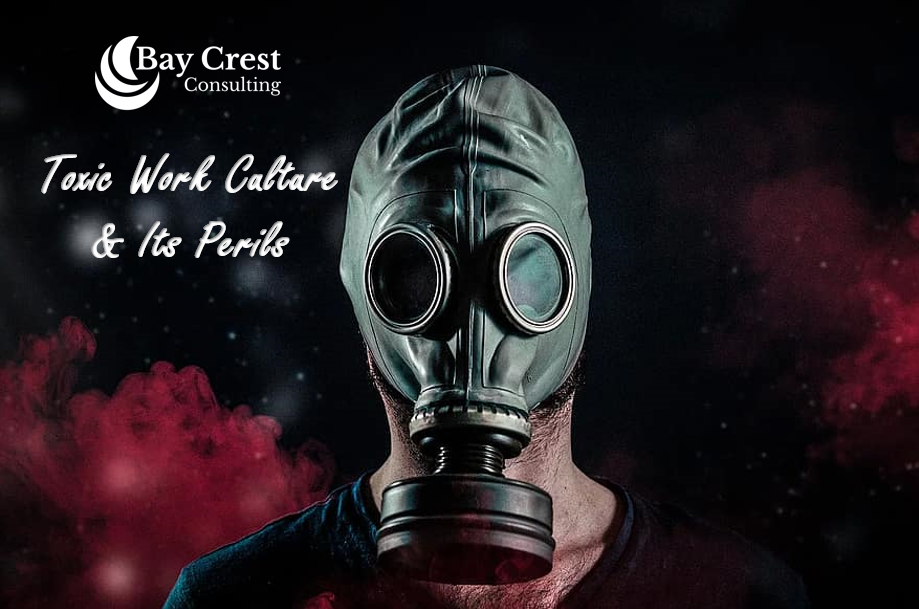“If you are lucky enough to be someone’s employer, then you have a moral obligation to make sure people do look forward to coming to work in the morning.”
– John Mackey, CEO of Whole Foods
The pandemic has forced firms and their employees to make decisions that were clouded with uncertainty. However, it has also brought with it the time to reflect. It is the perfect time for companies to re-evaluate their workplace culture and facilitate their employees with a conducive work environment; One that promises to safeguard their mental health and further a healthy work-life balance.
With the easing of lock-down restrictions in countries across the world, companies are asking their employees to start reporting to work. Like many aspects in a workplace that are undergoing renovation, management at these firms should start looking at their corporate culture and make an active effort to weed out toxicity.
The Effects of Negativity on Employees
Kevin Stiroh, Executive Vice President at Federal Reserve Bank, New York, in his article “The Economies of Why Companies Don’t Fix Their Toxic Work Cultures”, mentioned that “a firm’s cultural capital is an asset that impacts what a firm produces and how it operates.“
Stiroh expressed that the possibility of employee misconduct – the potential for behavior or business practices that are illegal, unethical or contrary to a firm’s stated values, policies and procedures – is a form of risk, and investing in cultural capital is the only way to reduce this risk.
A study conducted by Russell Johnson and colleagues of the University of Michigan found that rude behavior like sarcasm and put-downs, lead to mental fatigue and exhaustion. Consequently, employees had less self-control, which increased their tendency of being rude towards their colleagues. Workplace toxicity is not only bad for morale, but it also hurts the company severely.
Christine Porath, Associate Professor of Management at the McDonough School of Business, Georgetown University and Christine Pearson, Professor of Global Management at Thunderbird School of Global Management, Arizona State University conducted a study and their findings suggest that incivility demoralizes employees. Employees who were subjected to incivility markedly loosened bonds with their work-life. Almost half of the employees decreased their work efforts and intentionally spent less time at work, while 38% intentionally decreased the quality of their work. Many employees ended up taking out the frustration on their customers hence resulting in damages for the company.
Why do Employees Quit?
A study conducted by Accenture shows that, “More than half of both the women and men surveyed (57 percent and 59 percent, respectively) are dissatisfied with their jobs.” The most commonly cited reasons employees quit their jobs are:
- Lack of Recognition
- Internal Politics
- Issues with their Boss
- Lack of Empowerment
The cost of not making a positive workplace weighs heavily on the company’s budget:
- A toxic culture might damage productivity with a 40% decrease
- A tough culture that tolerates incivility might cost $14,000 per employee annually
- A positive, distinct and effective culture can lead to 20-30% more productivity than the competition.
The Need for Empathy at Work
Often, it is observed that high-performing organisations have cultures that are distinct, transparent, trustworthy, clear and motivating as they offer a shared purpose that inspires. Having one-on-one sessions or small weekly group meetings to discuss issues that could be feeding toxicity in the workplace, could nudge your employees to come forth with the problems they face. An anonymous employee engagement survey is a good option to understand the consensus of your employees and get a bigger picture of the work culture.
Toxic workplaces can be revived and made conducive for the employees with the right leadership. Several social movements in the United States and around the world are already forcing companies to re-evaluate their existing policies and protocols, immediately. It is essential for the decision-makers at firms to ensure transparent communication so as to prevent rumor-spreading and gossip which ultimately leads to distrust. Recognition motivates employees and makes them feel valued.
Tarunn Bhende, CEO of Bay Crest Consulting, believes that “a high emotional quotient coupled with a strong sense of empathy are two of the key factors to a being a great leader. Great firms stem from the growth of great teams; A leader must always be aware of the unspoken within the team to consistently build not only on their accomplishments, but also on their failures.”
References:
- Toxic Corporate Cultures—and How To Deal with Them, Brink News
- The Economics of Why Companies Don’t Fix Their Toxic Cultures, Harvard Business Review
- It’s Better to Avoid a Toxic Employee than Hire a Superstar, Harvard Business Review
- The Price of Incivility, Researchgate
- Ten Unmistakable Signs Of A Toxic Culture, Forbes
- A Toxic Work Culture Is Forcing High-Performing People to Quit, Medium
- Changing a Toxic Work Culture, HR Bartender
- Employee Retention: Meaningful Work And Psychological Safety, HR Bartender
Acknowledgements:
- Author: Moksha Tamma, Content Writer, Bay Crest Consulting



Some really marvelous work on behalf of the owner of this site, great content. Bonita Krishnah Leckie